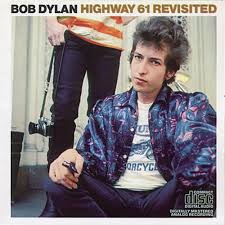
Tonight, Bob Dylan finished his show at the Idaho Botanical Garden with “Like a Rolling Stone.” And my daughter Tanya packed for college.
I had a longstanding work obligation this evening, officiating at the 25th anniversary renewal of vows ceremony for friends and congregants, so I missed the first half of the Dylan concert. I caught the last hour from the cheap—OK, free—seats: a rocky ledge in the foothills overlooking the garden, where I watched with a group of friendly and enthusiastic Dylan fans. We lacked intimacy of actually being in the venue, but the atmosphere was good compensation. We looked out over the entire Treasure Valley, into the Owyhee mountain range, and as the sun set and the half moon rose, the view was extravagantly beautiful. The stage was a distant array of flashing lights, and we couldn’t see the individual performers, but the sound was excellent.
I am a longstanding, die hard Bob Dylan fan, and I have seen him perform numerous times, beginning in 1978. He is famously inconsistent in concert, and I’ve attended more bad shows than good, but this one—at least the part that I heard—was excellent: a slow and moving version of “Forever Young,” some hard-edged newer blues tunes, an appropriately noir-tinged “Mr. Jones.”
And then the classic concluding number. “Like a Rolling Stone” has consistently been ranked by critics as the best and most influential rock song ever. It is the subject of innumerable essays, conversations, commentaries, and a full-length book by Greil Marcus. And I have sung this song hundreds, if not thousands of times, with my high school band, in my car with the radio (and my harmonica) blaring, with karaoke at Bar and Bat Mitzvah parties, in a restaurant in Jerusalem, a bar in Kathmandu, and numerous dance parties with my children in my own living room. I’ve got Dylan’s nasally whine down cold, as well I should after emulating it for over three decades.
The story of “Like a Rolling Stone” is legendary, and strongly associated with the time when Bob Dylan, who made his reputation as an acoustic folk hero, “went electric.” When he played it on tour at the “Royal Albert Hall” concert (actually in Manchester, England) in 1966, it sparked a revolutionary moment in the annals of rock and roll. As the opening notes echoed through the hall, an alienated folkie yelled, “Judas!” Dylan paused for a moment, then snarled back, “I don’t believe you. You’re a liar.” Then he turned to Robbie Robertson and his band and instructed them, “Play fucking loud!” The rest is history.
So Bob Dylan has been playing this song for almost 45 years, and performing for over fifty (he turns seventy next spring). And I’ve been listening to him for thirty five of those years.
Tonight, as he sang, I realized the immensity of that achievement, the march of time, and the power of art to reinvent itself and us. That’s the amazing thing: the song, which meant one thing in 1966—an explosion of revolutionary anger and discontent—sounded so different tonight. The fury of Dylan’s younger voice has given way to world weariness. When he asks, in the chorus: “How does it feel to be on your own, with no direction home, like a complete unknown, like a rolling stone?” he speaks with the tone of one who has spent decades on the road—with its mix of fatigue and fame. Rage has given way to ritual. The song that was once a kiss off to alienated fans is now the ultimate crowd pleaser.
That’s when I thought: listening to Bob Dylan is, for me, a lot like reading Torah. Each year we encounter the same words, the same portions. And yet each year, I find new meaning, new expressions, new emotions and insights and subtleties in those ancient words. The song remains the same. But the singer—and the listeners—don’t.
“Like a Rolling Stone” begins with the classic fairy tale opening line, “Once upon a time. . . ”
Of course what follows is really an anti-fairy tale, a story about coming to terms with very hard realities ( “having to be scrounging your next meal”; “when you’ve got nothing, you’ve got nothing to lose.”) But for all of its cynicism and loss, the song never completely strays from that opening. It invites us, like any story beginning with those four words, to look back on where we’ve been.
I haven’t needed much invitation to do that these days, anyway. Tomorrow afternoon, my daughter, Tanya, leaves for the University of Colorado in Boulder, where she will begin her freshman year. As I type this, she is in her bedroom spending a final evening with her high school friends, who are soon to all go their different ways. Bob Dylan turns seventy in March. By then, I will be fifty. And Tanya will begin her adult life tomorrow.
Growing up, growing older, heading out with no direction home, with nothing to lose, then making a life with all of its joys and heartbreaks. And experiencing the same things again and again--but learning to understand them differently with each passing day. What else is there?
Once upon a time, indeed.
Thanks for everything, Bob.
And Tanya.